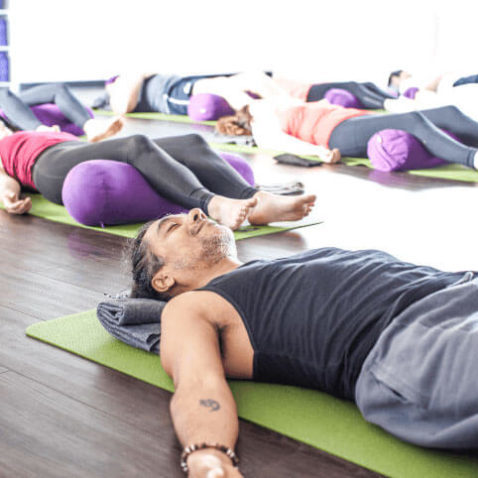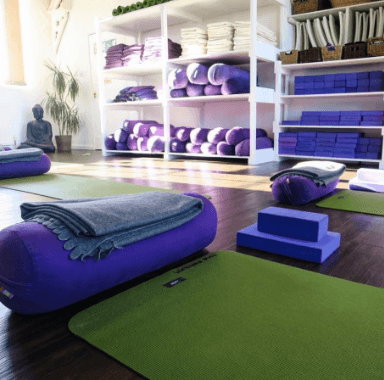Sorry if you are experiencing class booking issues. Whilst our engineers are fixing it please book via the Mindbody app or call us, or send an email.
Sorry if you are experiencing class booking issues. Whilst our engineers are fixing it please book via the Mindbody app or call us, or send an email.
In truth, I’d learned the habit of measuring my life by accomplishments and acquisitions – how much I could do in a day, and how many ‘things’ I had to show for it. Exhaustion and productivity had become a badge of honour – so much so, that when asked how I was, my immediate response would be “I’m great, I’m really busy!”….like this was something to be proud of; a measure of how my life was sooooooo important.
As a result, I spent months, maybe even years of feeling exhausted, overwhelmed and joyless. And this went on for so long it became normal to me. Perhaps this all sounds very familiar?
For decades, our culture hasn’t valued either rest or good quality sleep. In fact, we often work in environments where we’re rewarded for NOT resting – rewarded for being the first one in the office and the last to leave, rewarded for skipping lunch and responding to emails at 8pm, or even checking in while we’re on holiday. “She’s such a good team-player!”.
Thankfully we’re waking up to the fact (pun intended!) that this isn’t a good long-term strategy. There is a ton of research these days about the impact of constantly being on and ploughing through our days. Matthew Walker, the author of Why We Sleep argues a causal link between sleep-deprivation and physical health such as chronic conditions (diabetes, digestive problems, migraines), heart disease, cancer and Alzheimer’s, as well as our mental health including anxiety and depression to name a few.
Along with these health issues, we can often start to feel a dullness or numbness in our lives and in ourselves, and when that happens, consciously or unconsciously we start to think ‘is this all there is? And if so, what’s the point?’
Something as simple as taking regular naps and getting better quality sleep can change the way we feel and improve our health rapidly. A study by the University of Düsseldorf has shown that even very short naps enhance memory processing, while a Nasa study, looking at their effects on pilots on long flights, reported: “Naps can maintain or improve subsequent performance, physiological and subjective alertness, and mood.”


Like our French neighbours, who enjoy a 35-hour work week, or in Spain, where a siesta is a must, we can come to enjoy, embrace and revel in a little lovely shut-eye.
